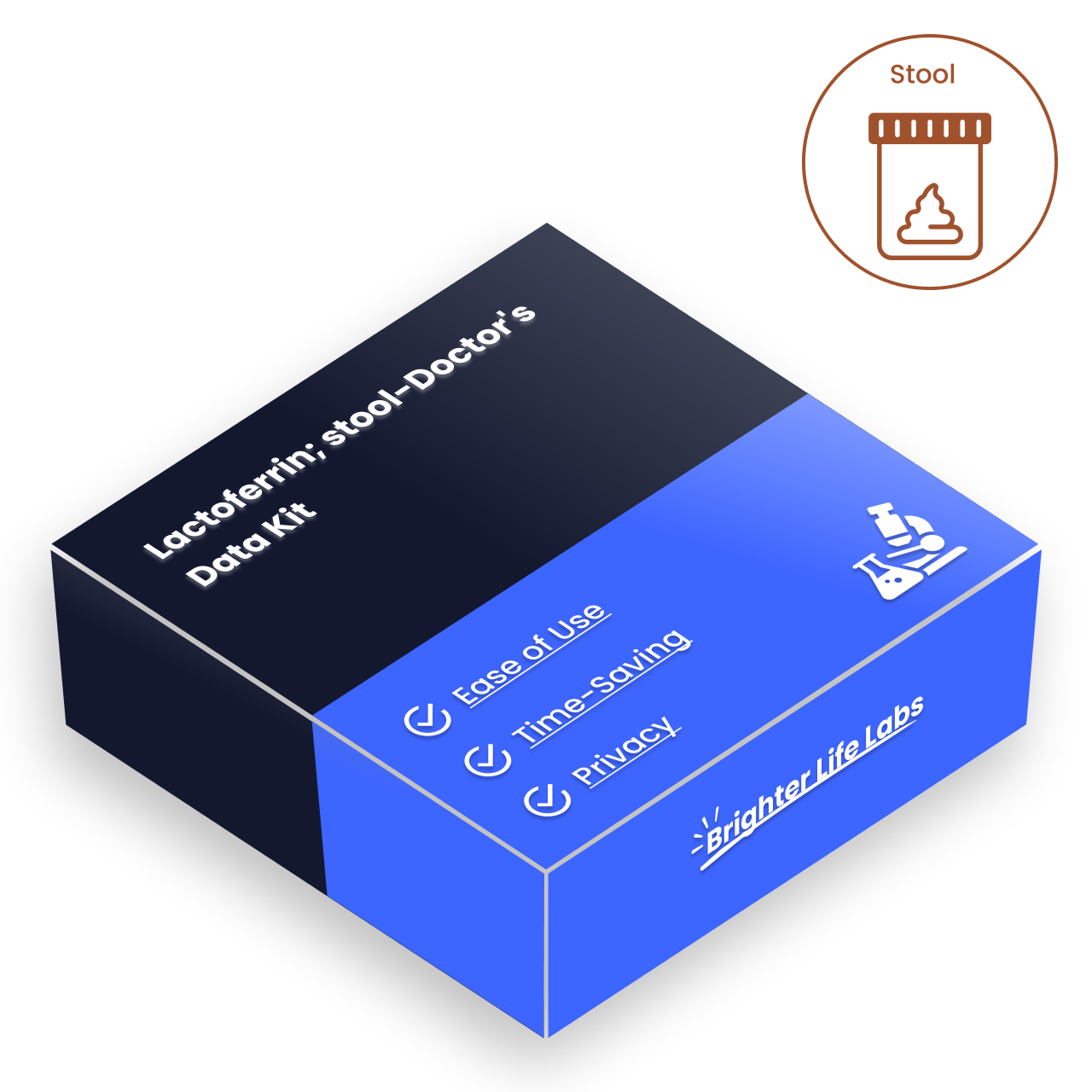1
/
of
1
Doctor's Data
Lactoferrin; stool-Doctor's Data Kit
Lactoferrin; stool-Doctor's Data Kit
Regular price
$199.00 USD
Regular price
Sale price
$199.00 USD
Unit price
/
per
Shipping calculated at checkout.
Couldn't load pickup availability
Note: This is a home collection test kit that will be mailed to you.
Fasting Required:
No
Specimen:
Stool
Results:
Average processing time 7-10 business days
Note: Result turnaround times are an estimate and are not guaranteed. Our reference lab may need additional time due to weather, holidays, confirmation/repeat testing, or equipment maintenance.
Special Instructions:
If you are taking antifungal or antibiotic medications, please finish the course of medication, and then wait three days before starting this collection. Please refrain from taking digestive enzymes, antacids, and aspirin for two days prior to and during the specimen collection, unless otherwise instructed by your physician. Never discontinue prescription medications without first consulting your physician
Description:
Fecal lactoferrin is a biomarker of serious gastrointestinal inflammation. Fecal lactoferrin is elevated in association with Inflammatory Bowel Disease (IBD) such as Ulcerative Colitis (UC) or Crohn's Disease (CD), but NOT Irritable Bowel Syndrome (IBS). Therefore, assessment of fecal lactoferrin levels enables distinction between IBD and non-inflammatory IBS. Such distinction is critical because, although both IBD and IBS may share some common symptoms such as diarrhea, abdominal cramping and weight loss, the diseases are treated quite differently. IBD may become life threatening, requires life-long treatment and possibly surgery. In contrast, IBS is often effectively treated with dietary restrictions, stress reduction and medication. Gastrointestinal inflammation associated with IBD is associated with increased infiltration of activated neutrophils into the mucosa and increased release of lactoferrin into the gut. Patients with inflammation of the GI tract, such as IBD (but not IBS), exhibit elevated lactoferrin concentrations in the feces. Clinical studies have shown that fecal lactoferrin levels of healthy persons are similar to IBS patients, but markedly increased in patients with active IBD. Patients with IBD oscillate between active and inactive disease states, and fecal lactoferrin levels increase 2-3 weeks prior to onset of clinical symptoms. During remission and effective treatment, fecal lactoferrin decreases significantly. Therefore disease activity, and efficacy of treatment can be monitored by following fecal lactoferrin levels
Share


